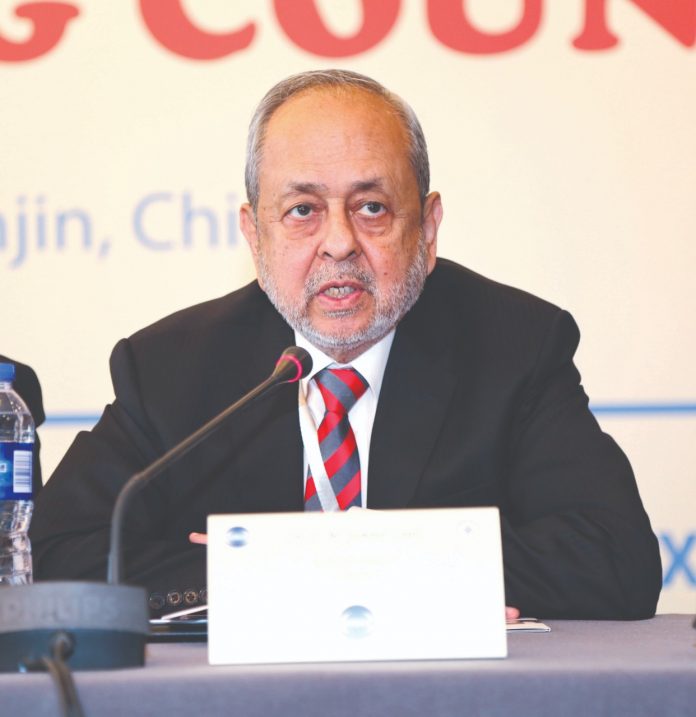DNA
ISLAMABAD: “Corona pandemic has seriously affected the national and global development upsetting progress of all sectors in the short and long-run. Progress in Science & Technology is the key to mitigate the aftermath of this crisis”, Prof. Dr. Atta-ur-Rahman, Chairman of Prime Minister Task Force on Science and Technology, Pakistan, expressed these views at a meeting held at COMSATS Secretariat to discuss the future prospects of Science and Technology in Pakistan.
The meeting that deliberated on state of S&T in Pakistan and its role in national development seemed to be in agreement that Human capacity and technological resources of scientific bodies working in Pakistan should be aligned with the global trends in S&T in order to achieve progress and development in the country.
Dr. S. M. Junaid Zaidi, Executive Director COMSATS; Dr. Akram Sheikh, Co-Chair and Distinguished Senior Fellow at Global Think Tank Network (GTTN), Prof. Dr. Muhammad Iqbal Choudhary, Coordinator General of COMSTECH &Director of the International Center for Chemical and Biological Sciences (ICCBS), Karachi (COMSATS Centre of Excellence); Prof. Dr. Anwar-ul-Hassan Gilani, Vice Chancellor of Haripur University, Dr. Aslam Baig, Distinguished National Professor at the National Centre for Physics (NCP), Dr. Kauser Abdulla, Higher Education Commission (HEC) Distinguished Professor and Dean of Postgraduate Studies at Forman Christian College, Lahore; Dr. Zabta Khan Shinwari, Professor of Biotechnology at Quaid-e-Azam University,Dr. Khalid Mahmood Khan, Secretary General of NASIC; and Mr. Parvez Butt, Former Chairman Pakistan Atomic Energy Commission were also present during the meeting.
During the meeting, Dr. Junaid Zaidi highlighted the need for investment in emerging technologies and centering upon contemporary sciences and knowledge. He urged adopting creative and innovation-led mechanisms as means to overcome barriers to economic growth and national development. Further, Dr. Zaidiemphasized the need for capitalizing and building on existing capacities, potential, and infrastructures to strengthen scientific culture in the country.
The discussions during the meeting revolved around various issues of the growth in science and technology in Pakistan along with the potential role of scientific institutions in the development and progress of the country. Corona pandemic was seen as a grave blow on national and global development affecting progress of all sectors in the short and long-run and need for necessary scientific solutions was underscored.
The participants also discussed the following in the context of improving S&T Infrastructure of Pakistan: KPIs and routine evaluation of S&T institutions; mainstreaming the use of technology/IT in Ministries; funding issues for important S&T interventions and R&D; importance of STI, industrialization and digitalization in national development.
Recommendations were made during the meeting regarding the structure of STI system in the country in view of the emerging needs and development-related challenges in the region. Industrial growth aided by S&T solutions and R&D was considered important for aiding Pakistan achieve economic and financial stability.
—

















